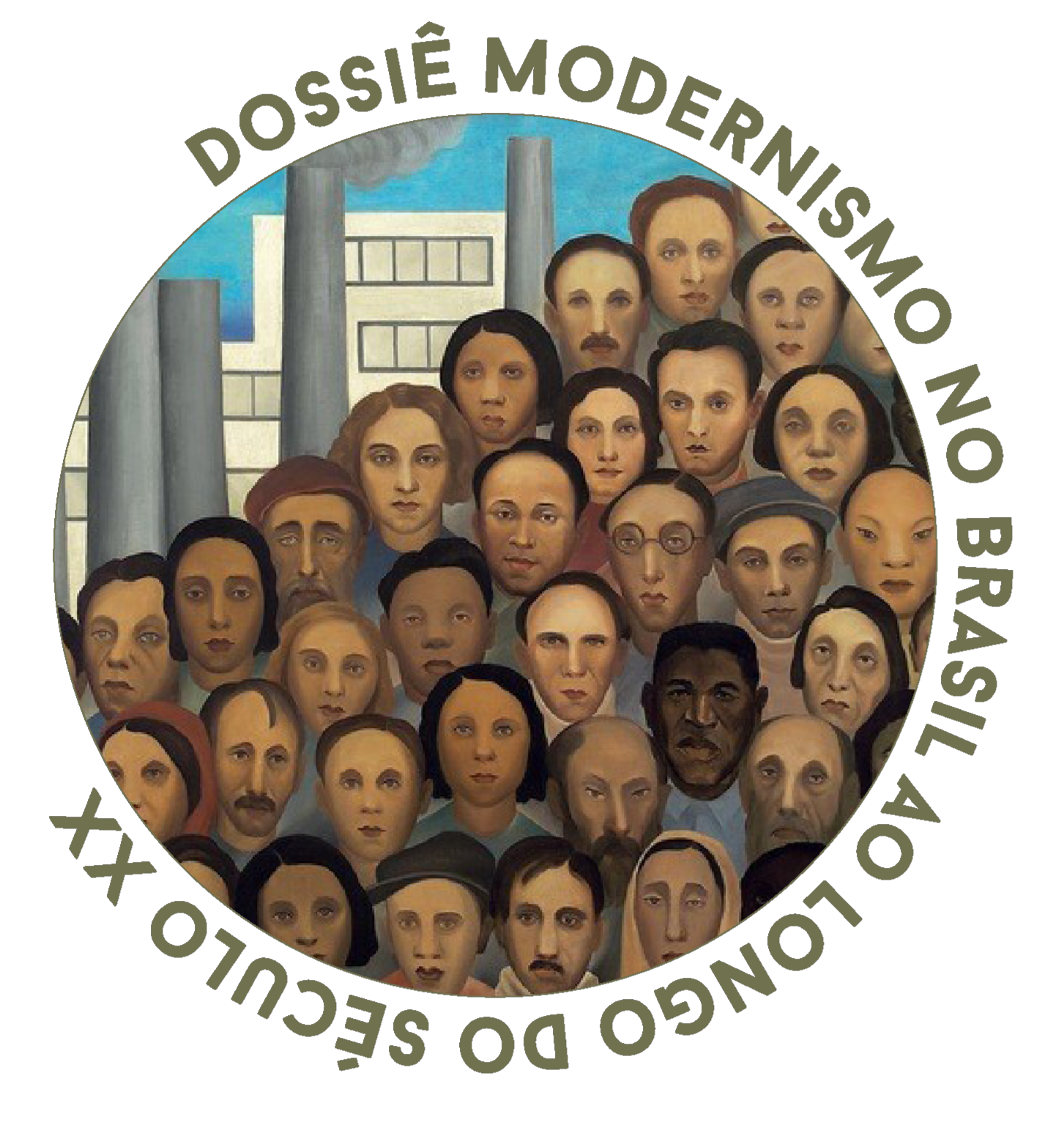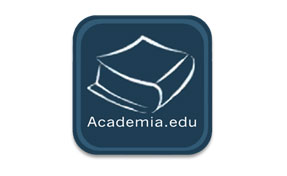Eugenia e literatura modernista
"supremacia"do mestiço como redenção brasileira?
DOI:
https://doi.org/10.47456/e-20243508Palavras-chave:
raça; povo; nação.Resumo
Esta pesquisa apresenta um estudo sobre os artigos de opinião de Plínio Salgado e Cassiano Ricardo – publicados no jornal Correio Paulistano – enquanto consumo cultural das posições de José Vasconcelos sobre a “raça cósmica”. É importante destacar, ainda, que os artigos de opinião tratados aqui traçaram as linhas mestras do verde-amarelismo. Problematizamos, também, como o modernismo verde-amarelo propôs outra reinterpretação da eugenia, que valorizava a contribuição do indígena, do africano e do imigrante europeu na formação racial brasileira. Em seguida, analisamos como as posições sobre miscigenação expostas nesses textos serviram de pano de fundo para inspirar a escrita do poema Martim Cererê (1927), de Cassiano Ricardo. Assim, levando em consideração o predomínio das teorias do branqueamento nos primeiros anos do século XX, defendemos que as apropriações das teses vasconcelianas pelos dois escritores modernistas produziram outro resultado como, por exemplo, a “raça cósmica” como valorização da mestiçagem em contraposição à raça pura.
Downloads
Referências
Fontes
O ATUAL MOMENTO LITERÁRIO. Correio Paulistano, 17 maio 1929, p. 4.
RICARDO, C. A poesia dos cafezais. Correio Paulistano, São Paulo, 1928, p. 3.
RICARDO, C. Martim Cererê. São Paulo: Editora Hélios, 1927a, p. 163.
RICARDO, C. Martim Cererê. 3. ed. São Paulo: Revista dos Tribunais, 1932, p. 139.
RICARDO, C. Minha terra tem palmeiras. Correio Paulistano, São Paulo, 1927b, p. 4.
RICARDO, C. Nheengassu verdeamarelista. Correio Paulistano, São Paulo, 1927c, p. 2.
SALGADO, P. O curupira e o carão. São Paulo: Editora Hélios LTDA, 1927a.
SALGADO, P. A revolução da Anta. In: SALGADO, P. O curupira e o carão. São Paulo: Editora Hélios LTDA, 1927b. p. 91-98.
SALGADO, P. Em defesa da Anta. Correio Paulistano, São Paulo, 1927c. p. 3.
SALGADO, P. Formação nacional. Correio Paulistano, São Paulo, 1927d. p. 3.
SALGADO, P. Raça harmoniosa. Correio Paulistano, São Paulo, 1926. p. 3.
Obras Gerais
AGUILAR CAMÍN, H.; MEYER, L. À sombra da revolução mexicana: história mexicana contemporânea 1910-1989. São Paulo: EDUSP, 2000.
ALMEIDA, S. Racismo estrutural. São Paulo: Pólen, 2019.
ANDERSON, B. Nação e consciência nacional. São Paulo: Ática, 1989.
BOSI, A. História concisa da literatura brasileira. São Paulo: Cultrix, 1970.
CARVALHO, L. D. A identidade da “raça cósmica”: a experiência da eugenia no México. História, Ciências, Saúde, Manguinhos, Rio de Janeiro, v. 23, p. 268-270, dez. 2016.
CHARTIER, R. À Beira da falésia: a história entre certezas e inquietudes. Trad. Patrícia Chittoni Ramos. Porto Alegre: Ed. Universidade/UFRGS, 2002.
CHARTIER, R. História cultural: entre práticas e representações. Rio de Janeiro: Difel Bertrand, 1990.
COELHO, G. L. S. A “Noite Africana” chegou ao “País das Palmeiras”: a apropriação do negro escravizado no poema Martim Cererê. Anos 90, [s. l.], n. 28, p. 1-18, 2021.
COELHO, G. L. S. Consumo cultural do pensamento vasconceliano na literatura modernista brasileira: intercâmbios intelectuais na constituição do discurso da raça latino-americana na década de 1920. Revista Eletrônica da ANPHLAC, [s. l.], n. 25, p. 183-221, 2019. Disponível em https://anphlac.emnuvens.com.br/anphlac/article/view/2954. Acesso em: 11 abr. 2023.
COUTINHO, A. A literatura brasileira: modernismo. 2. ed. Rio de Janeiro: Editora Sul Americana, 1970.
CUNHA, E. Os sertões (Campanha de Canudos). Rio de Janeiro: Laemmert & Co., 1902.
DIWAN, P. Raça pura: uma história da eugenia no Brasil e no mundo. São Paulo: Contexto, 2007.
DUSSEL, E. 1942: o encobrimento do outro: a origem do mito da modernidade. Petrópolis, RJ: Vozes, 1993.
FABRIS, A. Modernidade e modernismo no Brasil. Campinas: Mercado de Letras, 1994.
FELL, C. José Vasconcelos, los años del Águila (1920-1925). México: UNAM, 2009. 737 p. Disponível em: https://docs.google.com/file/d/0B9Ed9nf_plwQRWlzQ2J0YzVqZ2M/edit. Acesso em: 20 maio 2018.
FERNÁNDEZ RETAMAR, R. “Caliban en esta hora de nuestra América”, en Todo Caliban. Buenos Aires, CLACSO, 2004.
MBEMBE, A. Necropolítica. Arte & Ensaios. Revista do PPGAV/UFRJ, [s. l.], n. 32, dez. 2016.
MOREIRA, L. F. Meninos, poetas e heróis: aspectos de Cassiano Ricardo do modernismo ao Estado Novo. São Paulo: Editora da Universidade de São Paulo, 2001.
MOTTA, M. S. A nação faz cem anos: a questão nacional no centenário da independência. Rio de Janeiro: Editora FGV: CPDOC, 1992.
PERES, D. C. (coord.). Martim Cererê: o Brasil dos meninos, dos poetas e dos heróis. Rio de Janeiro: Instituto Nacional do Livro, 1987.
RICOEUR, P. A história, a memória, o esquecimento. São Paulo: Editora da Unicamp, 2000b.
SALGADO, Plínio. Literatura e política. In: SALGADO, Plínio. Obras completas. São Paulo: Américas, 1956. v.19, p. 5-125.
SANDES, N. F. A invenção da nação: entre a monarquia e a república. Goiânia: Editora UFG, 2011.
SCHWARCZ, L. M. O espetáculo das raças: cientistas, instituições e questão racial no Brasil – 1870-1930. São Paulo: Companhia das Letras, 1993.
SCHWARCZ, L. M. Nem preto nem branco, muito pelo contrário: cor e raça na sociabilidade brasileira. São Paulo: Claro Enigma, 2012.
STEPAN, N. L. A hora da eugenia: raça, gênero e nação na América Latina. Rio de Janeiro: Editora Fiocruz, 2005.
STERN, A. Mestizofilia, biotipología y eugenesia en el México posrevolucionario: hacia una historia de la ciencia y el estado, 1920-1960. Relaciones. Estudios de historia y sociedad, [s.l.], v. XXI, n. 81, 2000. Disponível em: http://www.redalyc.org/articulo.oa?id=13708104. Acesso em: 9 abr. 2023.
SUÁREZ Y LÓPEZ GUAZO, L. Eugenesia y racismo em México. [S. l.]: Eugenesia y racismo em México, 2005. Disponível em: http://www.librosoa.unam.mx/handle/123456789/2225. Acesso em: 9 abr. 2023.
RICOEUR, P. A metáfora viva. São Paulo: Edições Loyola, 2000.
TENÓRIO, M. Um Cuauhtémoc carioca: comemorando o centenário da Independência do Brasil e a raça cósmica. Estudos Históricos, Rio de Janeiro, v. 7, n. 14, p. 123-148, 1994.
VELLOSO, M. A brasilidade verde-amarela: nacionalismo e regionalismo paulista. Estudos Históricos, Rio de Janeiro, v. 6, n. 11, p. 89-112, 1993. Disponível em: https://bibliotecadigital.fgv.br/ojs/index.php/reh/article/view/1952. Acesso em: 9 abr. 2023.
VELLOSO, M. História & modernismo. Belo Horizonte: Autêntica Editora, 2010.

Downloads
Publicado
Edição
Seção
Licença
Copyright (c) 2024 Revista Ágora

Este trabalho está licenciado sob uma licença Creative Commons Attribution-ShareAlike 4.0 International License.
Revista Ágora (Vitória) © 2005 by Universidade Federal do Espírito Santo is licensed under Attribution-ShareAlike 4.0 International






















